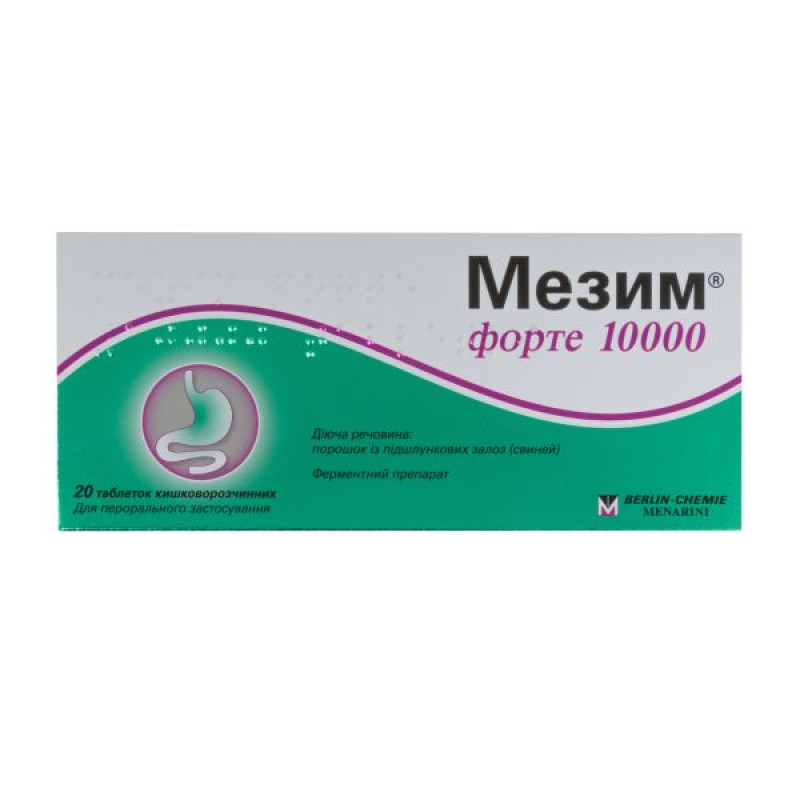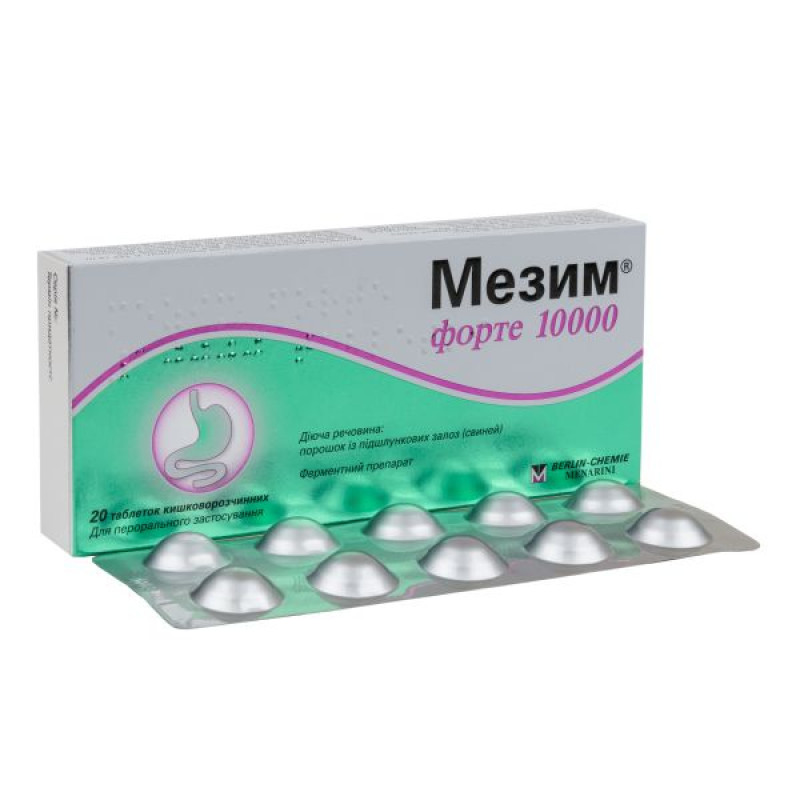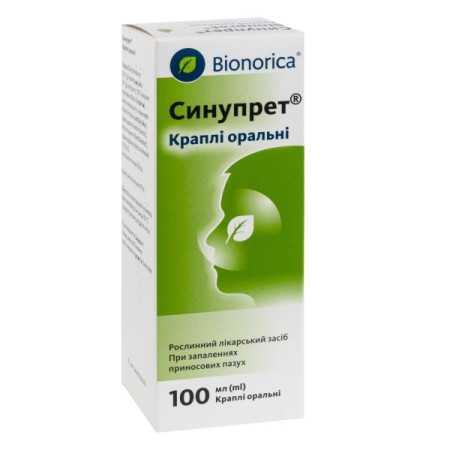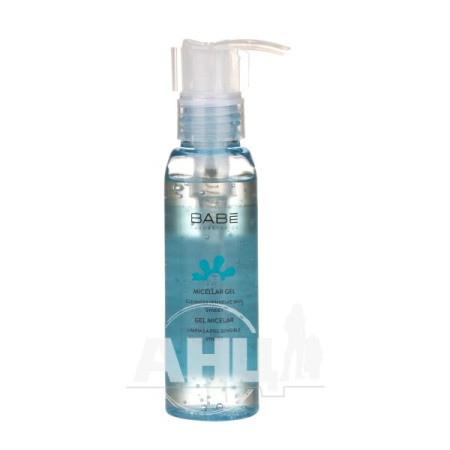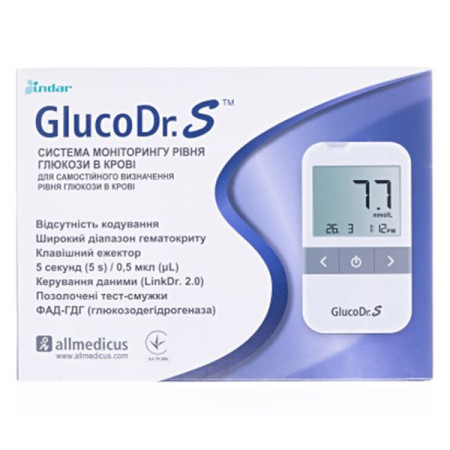Mezim forte 10000 enteric-coated tablets No. 20
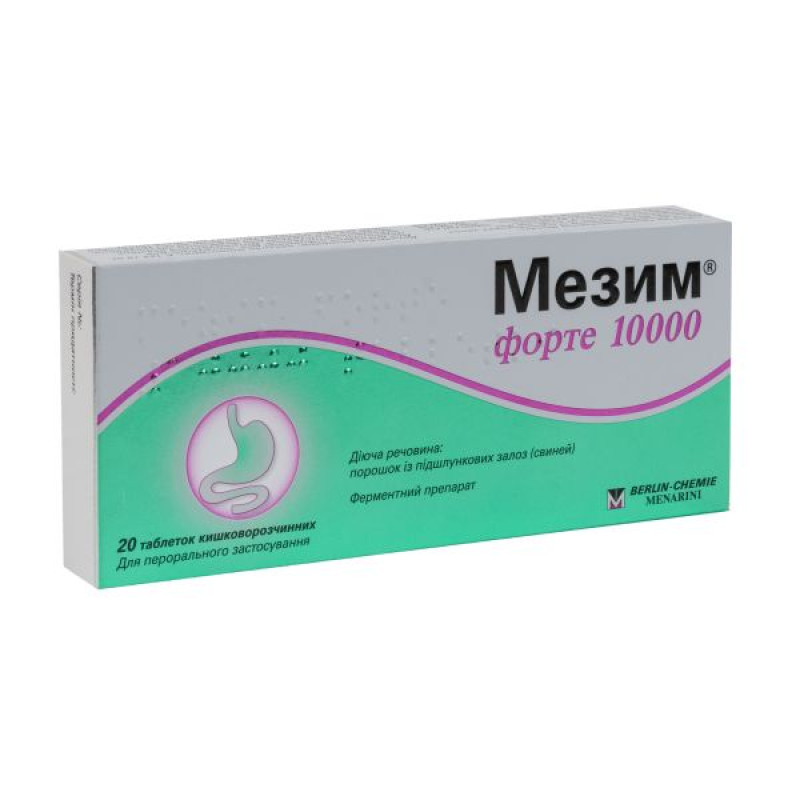
Instructions for Mezim forte 10000 enteric-coated tablets No. 20
Composition
active ingredient: powder from pancreas (pigs);
1 enteric-coated tablet contains 80.00–111.111 mg of pancreatic powder (pigs), which has a minimum lipolytic activity of 10,000 EF units (European Pharmacopoeia units), a minimum amylolytic activity of 7,500 EF units, and a minimum proteolytic activity of 375 EF units;
Excipients: lactose monohydrate, microcrystalline cellulose, colloidal anhydrous silica, crospovidone, magnesium stearate, hypromellose, methacrylate copolymer (type A), triethyl citrate, titanium dioxide (E 171), talc, simethicone, polyethylene glycol, carmellose sodium, polysorbate, azorubine (E 122), sodium hydroxide.
Dosage form
Enteric-coated tablets.
Main physicochemical properties:
Pink film-coated tablets with almost plane-parallel surfaces and a beveled edge.
Pharmacotherapeutic group
Digestive aids, including enzymes. Polyenzyme preparations.
ATX code A09A A02.
Pharmacological properties
Pharmacodynamics.
The active substance of the drug Mezim forte 10000 is a powder from the pancreas (pancreatin) of mammals, usually pigs, which, in addition to excretory pancreatic enzymes (lipase, alpha-amylase, trypsin and chymotrypsin), contains other enzymes. Pancreatin also contains other accompanying substances that do not have enzymatic activity.
Pharmacokinetics.
Absorption
Pancreatic powder is not absorbed in the gastrointestinal tract and is excreted in the feces. Most of it is destroyed or denatured by digestive juices or by bacteria.
Bioavailability
The enteric coating of the tablets, resistant to the action of gastric juice, protects the acid-sensitive enzymes from inactivation during passage through the stomach. Only after reaching a neutral or slightly alkaline environment in the small intestine are the enzymes released after dissolution of the coating. Due to the fact that the pancreatic powder is not absorbed in the digestive tract, there is no information on its pharmacokinetics and bioavailability.
The effectiveness of pancreatic powder is determined by the degree and rate of enzyme release from the dosage form.
Indication
Disturbances of the exocrine function of the pancreas, accompanied by digestive disorders.
Contraindication
Hypersensitivity to porcine pancreatin, azorubine varnish or other excipients of the drug.
Acute pancreatitis or chronic pancreatitis in the exacerbation stage (but episodic use is possible in the phase of fading exacerbation when expanding the diet in the presence of pancreatic function disorders). The drug should not be used in patients with obstructive intestinal obstruction.
Interaction with other medicinal products and other types of interactions
When using preparations containing pancreatic powder, the absorption of folic acid may decrease, which may require its additional intake into the body. The blood sugar-lowering effect of oral antidiabetic drugs acarbose and miglitol may decrease with simultaneous use of Mezim forte 10000.
Application features
In case of unusual abdominal discomfort or changes in symptoms, it is recommended to undergo an examination to exclude intestinal damage as a precautionary measure, especially if the patient uses a dose of more than 10,000 IU of EF lipase per kilogram of body weight per day.
The drug contains active enzymes that can damage the oral mucosa, up to the formation of ulcers, so the tablets should be swallowed whole, without chewing. Mezim forte 10000 should not be used in patients with rare hereditary forms of galactose intolerance, lactase deficiency or glucose-galactose malabsorption syndrome.
Use during pregnancy or breastfeeding
There are no adequate data on the use of Mezim forte 10000 in pregnant women. There is insufficient data on the effects on pregnancy, embryonal/fetal development, parturition or postnatal development obtained in animal experiments, so the potential risk to humans is unknown. Therefore, Mezim forte 10000 should not be taken during pregnancy and lactation, except in cases where its use is absolutely necessary.
Ability to influence reaction speed when driving vehicles or other mechanisms
The effect of Mezim forte 10000 on the ability to drive vehicles or operate other mechanisms is absent or insignificant.
Method of administration and doses
Recommended dose per meal: 2 – 4 tablets (corresponds to 20,000 – 40,000 IU of EF lipase).
The aim of treatment with Mezim forte 10000 is to achieve or maintain normal body weight and normalize the frequency of bowel movements or stool consistency. Increasing the dose should only be done under the supervision of a physician and to alleviate the severity of symptoms (e.g. steatorrhea, stomach pain).
The daily dose of enzymes should not be exceeded, which is 15,000 - 20,000 U of lipase per kilogram of body weight.
Mezim forte 10000 tablets should be swallowed whole, washed down with plenty of liquid, during meals, since the effectiveness of the drug Mezim forte 10000 may decrease when chewed, and the enzymes contained in the drug, when released in the oral cavity, may damage its mucous membrane.
The duration of treatment depends on the course of the disease and is determined by the doctor.
Children
The drug Mezim forte 10000 is used to treat children from 3 years of age. The dosage and duration of treatment are determined by the doctor.
Overdose
The use of very high doses of pancreatic enzymes may be accompanied by hyperuricosuria and hyperuricemia. Treatment is symptomatic.
Adverse reactions
The following classification is used to assess the frequency of adverse reactions:
very common: ≥ 1/10;
common: ≥ 1/100 - < 1/10;
sometimes: ≥ 1/1000 – < 1/100;
rare: ≥ 1/10,000 – < 1/1,000;
very rare: < 1/10,000,
frequency unknown (cannot be estimated from the available data).
Cardiovascular system: Frequency unknown: tachycardia.
Immune system disorders: Very rare: immediate allergic reactions (skin rash, urticaria, sneezing, lacrimation, bronchospasm, dyspnoea).
Frequency unknown: Azorubine lake (E 122) may cause allergic reactions.
From the digestive tract. Very rare: allergic reactions from the digestive tract (diarrhea, abdominal pain, nausea, change in the nature of stools).
Skin: Frequency unknown: urticaria, hyperemia, itching, angioedema.
General disorders: Frequency unknown: feeling hot, general weakness.
Reporting of suspected adverse reactions.
Reporting suspected adverse reactions after a medicine has been authorised plays an important role. This allows for continued monitoring of the benefit-risk balance of the medicine. Healthcare professionals should report any suspected adverse reactions.
Expiration date
3 years.
Do not use the drug after the expiration date indicated on the package.
Storage conditions
Store at a temperature not exceeding 30 ° C. Keep out of the reach of children.
Packaging
10 tablets in a blister; 1 or 2 or 5 blisters in a cardboard box.
Vacation category
Without a prescription.
Producer
BERLIN-CHEMI AG.
Location of the manufacturer and address of its place of business.
Glienicker Weg 125, 12489 Berlin, Germany.
There are no reviews for this product.
There are no reviews for this product, be the first to leave your review.
No questions about this product, be the first and ask your question.







